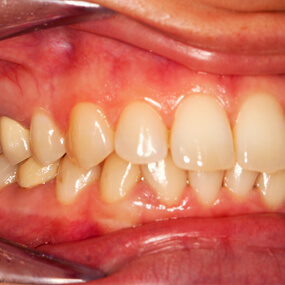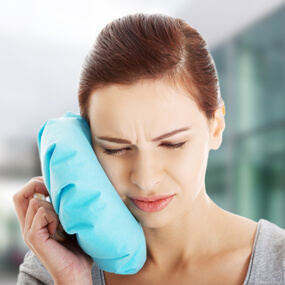How Dehydration Can Negatively Affect Your Oral Health

There is a connection between your oral health and your systemic health. That means that routine oral care not only helps protect your smile, but it is important to good overall health and long life. Most people appreciate how important brushing and flossing are to the well-being of their teeth and gums. But many do not consider their oral health when it comes to exercise, a well-balanced diet, and dehydration. In fact, dehydration is among the leading risk factors for gum disease and tooth decay.
Understanding Dehydration
Your body weight is 60 percent water, and water is crucial to all bodily functions. Much of your water is contained within the cells, but there is water in the blood vessels and between the cells as well. Dehydration is a deficit of that body water. It happens when you do not replenish the water you expend. Your body expends water in a number of different ways, including:
- Exhalation
- Sweating
- Urination
- Bowel movements
Dehydration Symptoms
Your body gets much of the water it needs through the foods you eat. It cannot get all the water it needs in that manner, however, and so you need to drink water or at least liquids containing water. When you do not drink enough, symptoms will start to manifest. The most common symptom is xerostomia—commonly referred to as dry mouth. This happens because your salivary glands lack the fluid needed to create adequate saliva. The tongue itself can become dehydrated, and those symptoms include dryness, roughness, and a dulling of the normal pink color. Other indications of dehydration include:
- Fatigue
- Fainting
- Dizziness
- Headaches
- Intense thirst
- Disorientation
- Increased heart rate
- Little to no urination
How dehydration affects you and how soon depends on a wide range of factors. However, if the dehydration continues, the condition will lead to serious health complications, including:
- Coma
- Seizures
- Heatstroke
- Kidney failure
- Hypovolemic shock
Dehydration and Oral Health
Dehydration affects your oral health as well, and this negative impact does not require serious dehydration and symptoms. It begins as soon as the mouth is dry for an extended period. A core purpose of the saliva that your glands produce is to clear food particles, bacteria, and acids from the mouth. When that is not occurring in an adequate fashion, it can lead to a wide range of oral health issues:
- Tooth decay – Your body makes saliva when you chew in order to aid with that chewing process, begin the digestion process through enzymes, and help to wash the food bits away. Food particles that remain provide nutrition for oral bacteria to form plaque and produce acids as part of that process. Those acids eat away at your tooth enamel and create cavities that will eventually become more serious tooth decay. When your body is making enough saliva, that fluid actually helps neutralize those acids.
- Periodontal disease – Plaque not only builds up on the tooth but along your gumline and on other oral surfaces. That plaque contains bacteria that can infect your gums, and your gums are more prone to such infections when the mouth is dry. An infection of your gums leads to an inflammatory response, which is periodontal disease. The earliest form of gum disease is gingivitis, which is relatively minor in that you can reverse it through hydration and regular brushing and flossing. If that gum disease persists, however, it will advance to periodontitis, which is not reversible and much more severe. It causes the gums to recede so that your tooth roots are exposed and will eventually undermine bone and connective tissues. This will eventually lead to tooth loss and even infections that spread to the jawbone and elsewhere.
- Halitosis – Dry mouth is the leading cause of bad breath. Not only are there more bacteria because your mouth is dry, but there are actually agents in your saliva that suppress the aspects of bacteria that cause foul smells. You can brush your teeth, rinse with mouthwash and chew sugar-free gum, but if the underlying issue is that the mouth is dry, that bad breath is going to keep returning.
- Weakened tooth enamel – Your tooth enamel is healed and strengthened through a process known as remineralization. This is why the American Dental Association recommends fluoride toothpaste. In addition to fluoride, you have other minerals in your mouth that are important to your teeth, such as calcium. Saliva is integral to distributing these minerals to all of your teeth. When there is not enough saliva, your teeth do not get the minerals they need, and the enamel is worn down quicker due to the acids in the mouth.
- Fungal infections – Xerostomia can also make your mouth more prone to fungal infections like thrush. In many cases, there are other underlying health issues that lead to the infection, but the dry mouth provides the foothold.
Bolster Your Saliva for Better Oral Health
Saliva has many benefits for your general oral health, including:
- Inhibiting the staining of your teeth. Foods like tomato sauce and beverages like red wine can stain your teeth, and saliva mitigates that effect by washing those substances away.
- Maintaining fresh breath. Your saliva is constantly replenishing itself to keep the teeth clean. Without enough saliva, even someone who practices good oral care otherwise will have halitosis.
- Strengthening your tooth enamel. Your enamel can be repaired, but that remineralization will not be nearly effective without your saliva distributing those trace minerals throughout your mouth.
- Fighting gum disease and cavities. A dry mouth will experience faster and more abundant plaque accumulation, which means that you will be more susceptible to preventable oral health issues.
How to Know You Are Dehydrated
Be mindful that there is no hard and fast rule for how much water you need on a daily basis. You should drink water throughout the day, even when you are not thirsty and when you eat. There are signs you can watch out for, but each person is unique, and generally, when these signs manifest, you have already lost 2 percent of the fluids you need. Signs to watch for include:
- Dark urine
- Headaches
- Muscle cramps
- Sudden mood changes
- Dry lips and nasal passages
- Reduced mental acuity
- Weakness and tiredness
Keeping Hydrated
If you experience any indications that you may be suffering from significant dehydration, consult with a doctor right away. A medical professional is needed to rehydrate your body quickly in a safe manner. For light dehydration and in order to prevent it, consider the following steps:
- Drink plenty of water throughout the day. There is no one rule that suits everyone, but you should have a water container on hand at all times so that you can sip often. In addition, be mindful that carbonated drinks and sports drinks are not good substitutes for water.
- Hydrate prior to, during, and after working out to offset perspiration.
- Eating a diet rich in fresh fruits and vegetables makes it easier to stay hydrated.
- Limit your intake of caffeinated drinks, which cause increased urination.
- Limit your intake of alcoholic beverages, and when you do drink, be sure to hydrate.
- When working outdoors, take a break at the first signs of lightheadedness or dizziness.
- Wear light-colored clothes outdoors and dress in layers so that you can adjust as needed.
- If any clothes are saturated in sweat, replace them with dry clothes as soon as possible.
- Anticipate temperatures and humidity levels that may necessitate having extra water on hand.
Start Your Hydration as Soon as You Wake
Many people reach for a coffee as their first drink of the day, but consider that you have just gone eight hours or so without hydration. That is why it is so important to start your morning with a glass of water. Additional hydration may be necessary if you work out in the morning or you drink coffee and other caffeinated drinks. The benefits of hydrating early in your day include:
- Making it easier to remain hydrated throughout the day
- Increasing your alertness and responsiveness
- Boosting your immune system
- Flushing toxins from your body that had built up overnight
- Jump-starting your metabolism even before you eat breakfast
- Improved complexion and skin radiance
- Better regularity with urination and bowel movements
Drink Purified Water for Optimal Oral Health
Many people opt for deionized or distilled water, but such options may be inferior to spring water for your oral health. Spring water contains beneficial minerals, including calcium, magnesium, and phosphorous. For those wishing to purify their water while leaving in the necessary minerals, you may want to consider investing in a reverse osmosis filtration system with a mineral filter. Reverse osmosis safely removes impurities, such as bacteria, viruses, and numerous chemicals: chlorine, lead, mercury, and so forth. It therefore improves the look, smell and taste of your water. Reverse osmosis systems are generally affordable and easy to maintain, and they can pay for themselves over time by eliminating your need for bottled water or an ongoing water delivery service.
Be Consistent With Your Hydration
If you establish good hydration habits, it will be much easier to remain hydrated on a consistent basis. Be mindful that when you feel thirsty, you are already dehydrated to some degree. This is why doctors recommend sipping water throughout the day as part of your normal routine rather than as a response to a particular symptom. Consistent hydration provides many health benefits throughout your body.
Staying hydrated and properly balancing your diet is essential to good oral health, as is regular oral care at home. Do not skip your regular dental checkup either. If you do experience oral health issues, your dentist can identify them much earlier than you would be likely to spot them. Also, be mindful that your dentist is a resource, and you can ask him or her about hydration, diet, oral care products, and so forth.
Keep Hydrated for a Healthy Smile
The importance of hydration to your oral health cannot be overstated. Many dentists and doctors recommend having a water bottle on hand at all times so that you can sip water throughout the day. Jeffrey D. Clark, DDS, also encourages you to visit Scottsdale Cosmetic Dentistry Excellence at least twice a year for a regular checkup and to have your teeth cleaned. Call us at 480 585 1853 to schedule your appointment.




